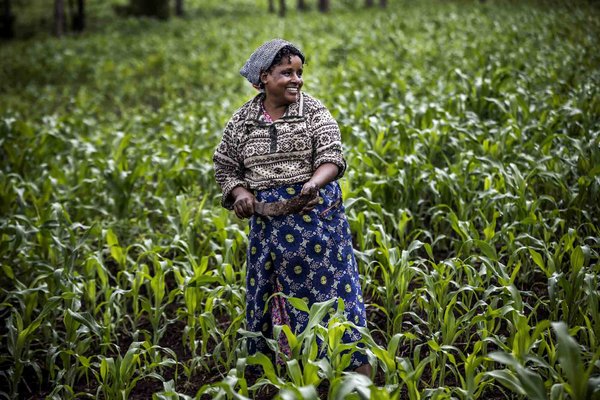- Share this article
- Subscribe to our newsletter
Decade of Family Farming launched
The United Nations Decade of Family Farming (UNDFF, 2019-2028) and a Global Action Plan to boost support for family farmers, particularly those in developing countries, was launched on the 29th May 2019.
The Food and Agriculture Nations of the United Nations (FAO) and the International Fund for Agricultural Development (IFAD) lead activities for the implementation of the Decade of Family Farming, declared by the United Nations at the end of 2017, which aims to create a conducive environment that strengthens the position of family farming and maximises family farmers’ contributions to global food security and nutrition.
Family farms represent over 90 per cent of all farms globally, and produce more than 80 per cent of the world's food in value terms. They are key drivers of sustainable development, including ending hunger and all forms of malnutrition.
The Global Action Plan for the Decade of Family Farming
The Global Action Plan for the Decade of Family Farming is a guide to develop policies, programmes and regulations to support family farmers, putting forward collective and coherent actions that can be taken during the next ten years. It highlights the need to increase, among other things, family farmers' access to social protection systems, finance, markets, training and income-generating opportunities.
The Plan details specific activities to address interconnected challenges, and target a range of actors — governments, United Nations agencies, international financial institutions, regional bodies, farmers and producer organisations, academic and research institutes, civil society organisations and the private sector, including small and medium enterprises.
Actions include:
• developing and implementing an enabling policy environment (including comprehensive and coherent policies, investments and institutional frameworks) that support family farming at local, national and international levels
• supporting rural youth and women by enabling them to access productive assets, natural resources, information, education and markets, and participate in policy-making processes
• strengthening family farmers' organisations and their capacities to generate knowledge and link locally specific (traditional) knowledge with new solutions
• improving family farmers' livelihoods and enhancing their resilience to multiple hazards though access to basic social and economic services, as well as facilitating and promoting production diversification to reduce risks and increase economic returns
• promoting sustainability of family farming for climate-resilient food systems and their access, responsible management and use of land, water and other natural resources
(FAO/IFAD/ile)





Add a comment
Be the First to Comment